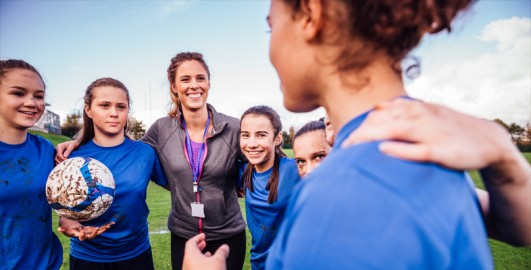Week 4: Supporting athletes in practice: creating a safe environment
Introduction
The final week of this course begins by considering the role of the coach when working with neurodiverse athletes. You will consider the role of coach education in equipping coaches with the knowledge and skills to work with neurodivergent athletes and be introduced to the strengths-based approach to coaching. The consideration of how coaching practice can contribute to the barriers experienced by neurodiverse athletes is also discussed, along with how coaches can create safe and inclusive spaces for all athletes to support athletic development.
Throughout this week you will review a range of case studies and research and consider how this relates to your learning from Weeks 2 and 3 to bring together the voices of coach, family and athlete to create a holistic picture of neurodiversity in sport and exercise.
An Instagram post from footballer Safia Middleton-Patel highlights the importance that the coach role can have to an athlete’s sporting experiences and athletic development.
Safia’s Instagram post [Tip: hold Ctrl and click a link to open it in a new tab. (Hide tip)]
Safia says in her post that she almost quit football because of the misunderstanding by her coaches. She was given labels such as ‘the rude one’ by coaches who didn't understand her. She says ‘Coaches can be the most influential and important role model to autistic people’. She also talks about the importance of patience and communication when coaching neurodivergent athletes.
By the end of this session, you should be able to:
- consider the experiences of coaches working with neurodiversity and the impact this may have on their coaching practice
- describe what is meant by ‘strengths-based coaching’ and how this can be implemented effectively with neurodivergent athletes
- recognise the role that coach education can play in assisting coaches to support all athletes.
